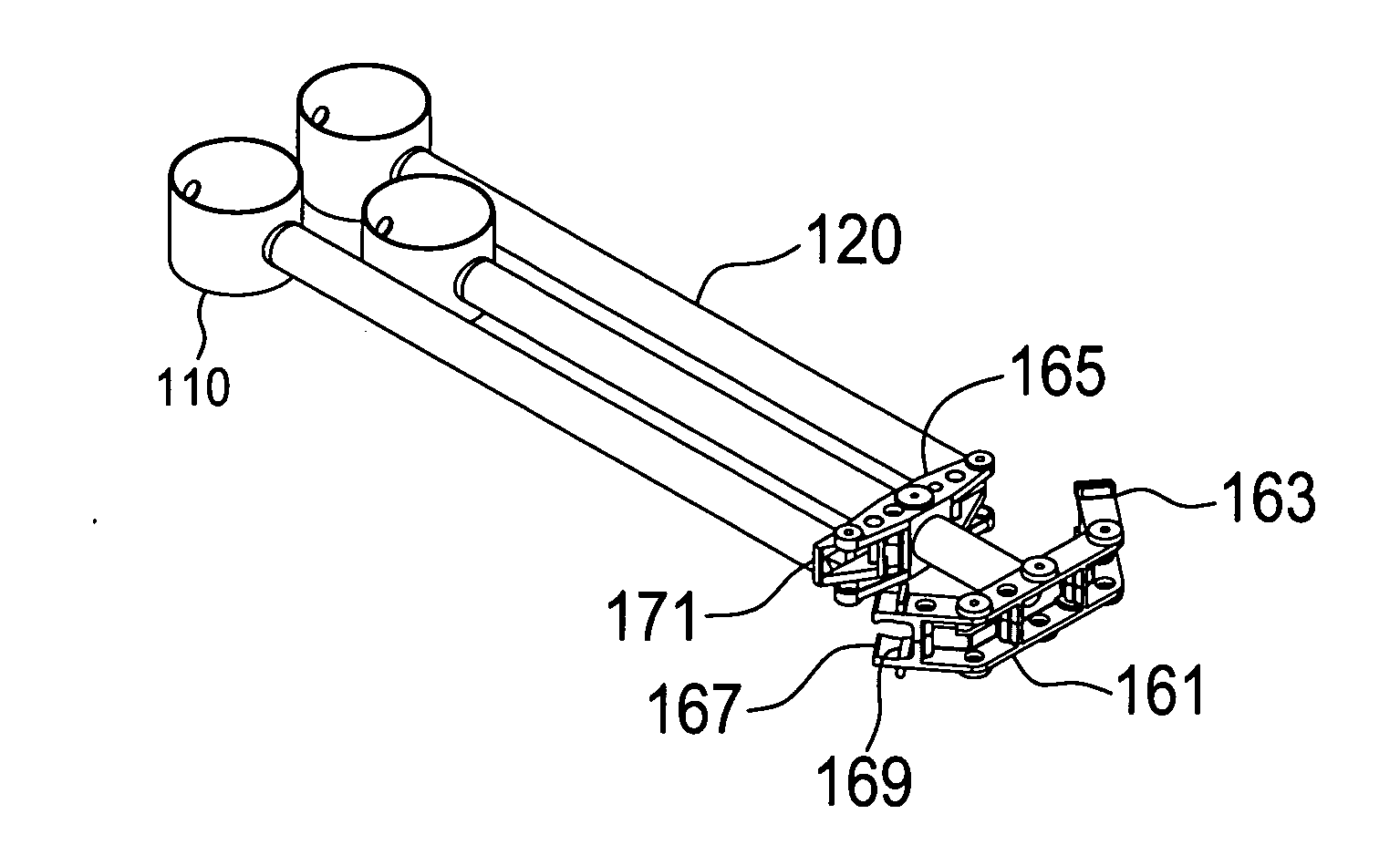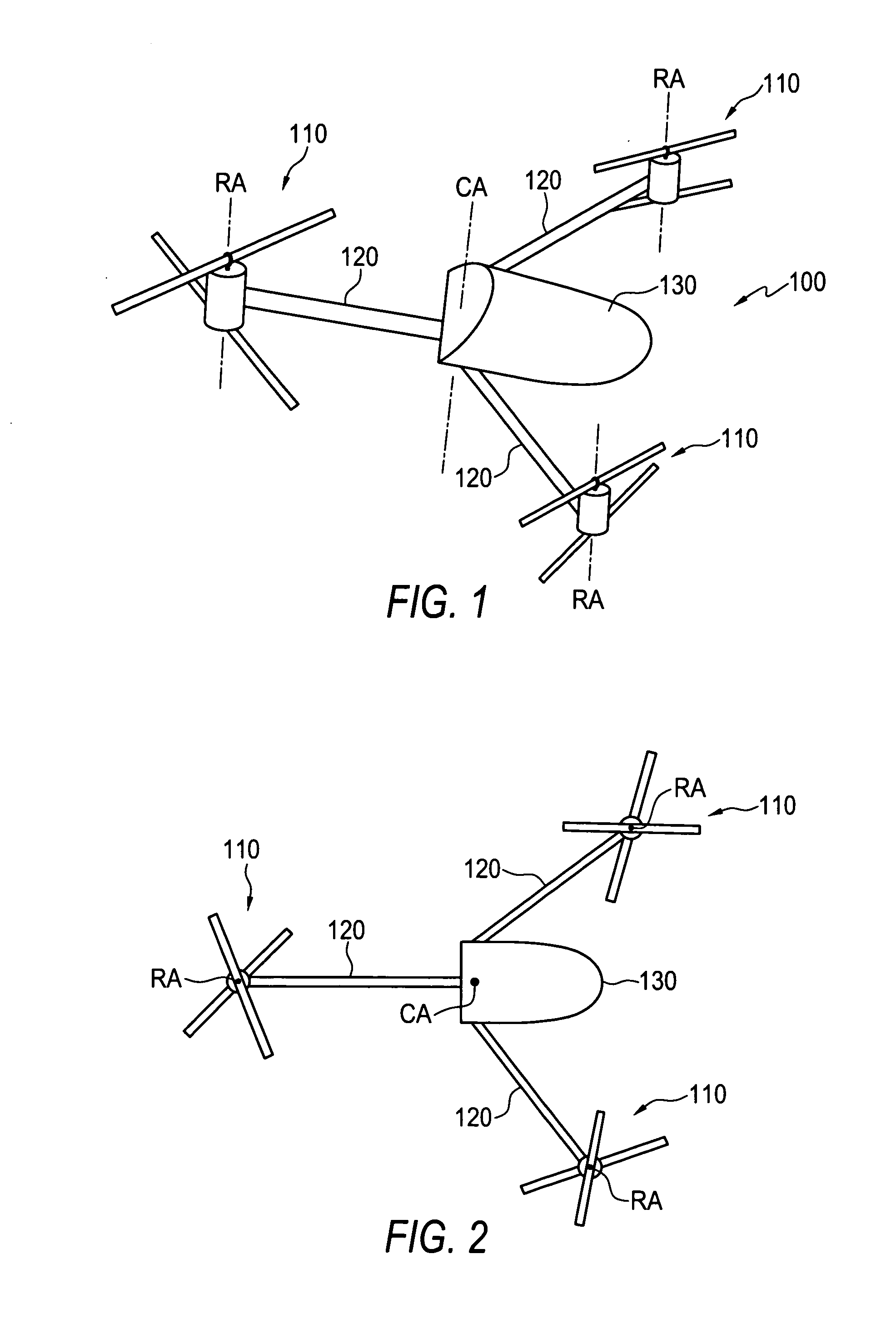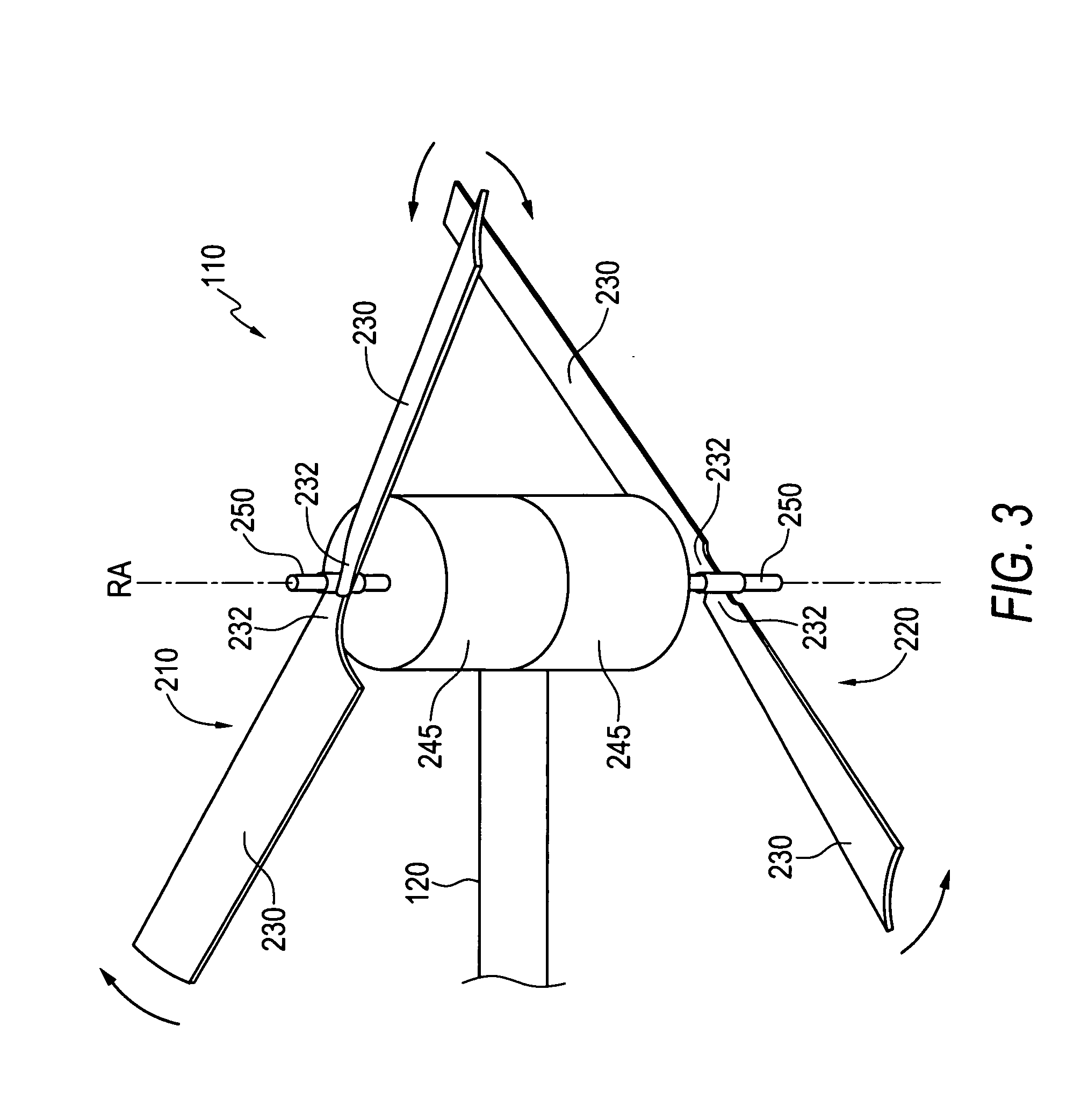Helicopter with folding rotor arms
a technology of rotor arms and rotor blades, which is applied in the direction of aircraft, fuselages, transportation and packaging, etc., can solve the problems achieves the effect of reducing the risk of the blades reducing the risk of the rotor contacting the arm, and increasing the distance between the rotor blades and the arm
- Summary
- Abstract
- Description
- Claims
- Application Information
AI Technical Summary
Benefits of technology
Problems solved by technology
Method used
Image
Examples
Embodiment Construction
[0032]FIGS. 1 and 2 illustrate an aircraft 100 with three coaxial rotor pairs 110. Using the three coaxial rotor pairs 110, aircraft 100 is capable of performing the maneuvers a typical conventional helicopter is capable of, yet does not require the mechanical complexity of a typical conventional helicopter and all of the coaxial rotor pairs 110 can be used to create lift.
[0033]Each of the rotor pairs 110 are positioned at the end of an arm 120 connected to a main body 130 of the aircraft 100. In an aspect, the arms 120 are positioned extending at regular intervals around a central axis, CA, with each arm 120 positioning the rotor pair 110 attached to the end of the arm 120 the same distance away from the central axis, CA, as the other rotor pairs 110 and with each arm 120 positioned so the rotor pairs 110 are positioned at the corners of an equilateral triangle, as illustrated in the top view of FIG. 2.
[0034]FIG. 3 illustrates a perspective view of one of the rotor pairs 110. The r...
PUM
 Login to View More
Login to View More Abstract
Description
Claims
Application Information
 Login to View More
Login to View More - R&D
- Intellectual Property
- Life Sciences
- Materials
- Tech Scout
- Unparalleled Data Quality
- Higher Quality Content
- 60% Fewer Hallucinations
Browse by: Latest US Patents, China's latest patents, Technical Efficacy Thesaurus, Application Domain, Technology Topic, Popular Technical Reports.
© 2025 PatSnap. All rights reserved.Legal|Privacy policy|Modern Slavery Act Transparency Statement|Sitemap|About US| Contact US: help@patsnap.com



